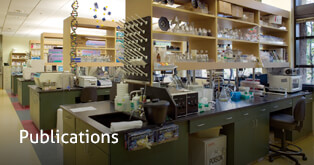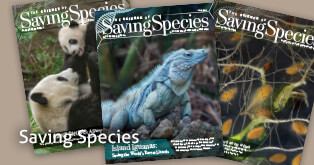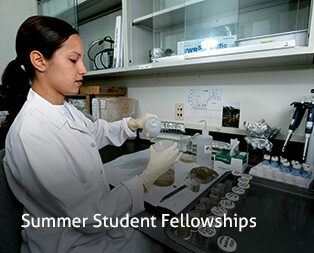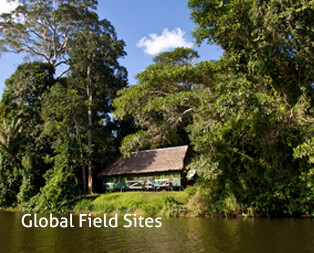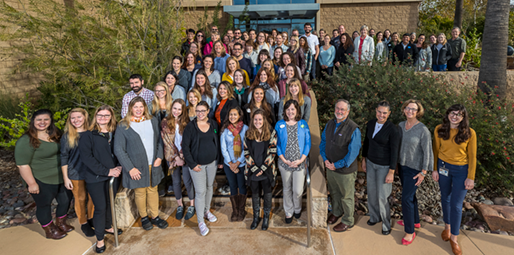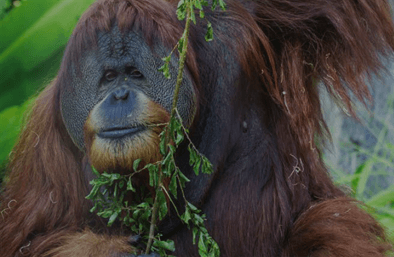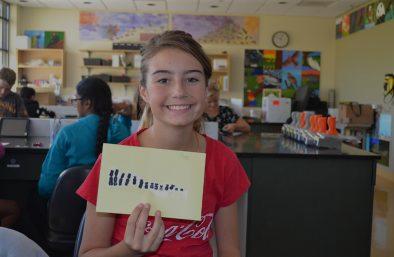Finding Comfort in Fear: An Independent Journey Towards Success
Mahatma Gandhi claims there are seven sins in the world. Throughout a particular course of my graduate degree program, I kept the first of these sins in mind: “wealth without work.” You see, I am an avid believer that one does not experience true success in life without feeling discomfort, that we cannot grow if we do not have growing pains.
I enrolled in the Independent Study course during the Fall semester of 2018, which is offered through the Advanced Inquiry Program and Project Dragonfly at Miami University and San Diego Zoo Global. In terms of this course, my growing pains were intellectual, and the project was a true testament to my desire for success.
The main goal of this study was to improve my understanding of the art and science of education, and also to apply these concepts to design an informal workshop and its supporting materials. To some of you this may not sound like a significant quest, but given my business background I did not possess the necessary skills prior to the semester. Fortunately, I was surrounded by educators within the Project Dragonfly community who provided supportive resources and sage advice throughout this effort. But even with the assistance from my peers, it was my first chance to independently learn how to create education materials.
Independence is a detail worth highlighting, because each student must maintain discipline and diligence for three months with relatively minimal supervision. Unlike other courses where assignments are typically due on a weekly basis, this course allowed us to determine our own deadlines which was both a relief and a challenge. I was filled with fear and intimidation throughout the better half of the semester, but I knew I needed to push through these emotions to come out on top. In order to persevere, I had to keep the bigger picture in mind: my dream and vision for opening a retail store and community space in the San Diego region that offers sustainable and ethical fashion.
This store, the Rewild Method, is on a mission to reconnect product consumers to nature through curated collections and educational workshops. In order to succeed at this mission, education is a major foundation of the business. This is why I sought to learn best practices for informal workshops, and to apply these teachings while developing a workshop to be offered by the business. My retail business will offer a variety of simple 1-2-hour workshops in the beginning of its life. The topics will include the aforementioned fast fashion environmental implications, as well as DIY clean beauty recipes, zero waste lifestyles, composting, easy energy efficiency tips, alternative transportation recommendations, water conservation and quality, and beyond.
Throughout the Fall 2018 semester, I created the curriculum, pre- and post-evaluation surveys, and an educational presentation for a workshop on the environmental impacts of fast fashion. A major objective was to remind people about the history of fashion as we know it, and how the industry of our modern era became so damaging to both our biodiversity and humanity. I often find that people forget the way of life before the industrial revolution transformed our lifestyles to the way we live today, and I believe living sustainably means we need to take some small steps backwards in order to progress forward. I shared the fashion industry’s ranking in terms of its pollution volume, which is the fifth most polluting in the world, equal to the livestock industry. At the end of the workshop, I wrap up the topic with advice for moving forward and other resources that the students can share with their friends and families.
Some of my peers in the Independent Study created lesson plans that adhere to the Next Generation Science Standards (NGSS), or developed a presentation to an audience of volunteers about the AZA 2018 Conference. And while these topics may be more directly related to the activities of Project Dragonfly and the San Diego Zoo, I believe there is equal value in communicating topics that are less obviously impacting biodiversity.
I recognize that biodiversity may not be a common concern, but consumer products are certainly relatable to a wider audience. That’s because one thing is certain: most humans alive today are consumers in one way, shape or form. The workshops offered by the Rewild Method aim to help the average product consumer of the San Diego region understand and appreciate how every purchase offers an opportunity to improve our impact on the planet and wildlife.
In order to make this vision come to life, the work and discomfort I experienced through this independent study was essential to my growth as an educator. I now have a wealth of knowledge on creating a curriculum and education materials, as well as evaluations for informal workshops. It was the most stimulating experience I had during my 2.5 years throughout Project Dragonfly thus far, and I will be forever grateful for having the opportunity.
Jaclyn Vogel, AIP Student, Miami University and San Diego Zoo Global.

